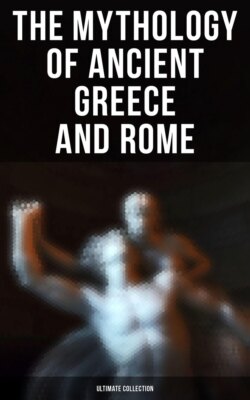Читать книгу The Mythology of Ancient Greece and Rome - Ultimate Collection - Homer - Страница 120
На сайте Литреса книга снята с продажи.
EXPLANATION.
ОглавлениеIf this story is based upon any historical facts, they are entirely lost to us; as all we learn from history concerning Narcissus, is the fact that he was a Thespian by birth. The Fable seems rather to be intended as a useful moral lesson, disclosing the fatal effects of self-love. His pursuit, too, of his own image, ever retiring from his embrace, strongly resembles the little reality that exists in many of those pleasures which mankind so eagerly pursue.
Pausanias, in his Bœotica, somewhat varies the story. He tells us that Narcissus having lost his sister, whom he tenderly loved, and who resembled him very much, and was his constant companion in the chase, thought, on seeing himself one day in a fountain, that it was the shade of his lost sister, and, thereupon, pined away and died of grief. According to him, the fountain was near a village called Donacon, in the country of the Thespians. Pausanias regards the account of his change into the flower which bears his name as a mere fiction, since Pamphus says that Proserpina, when carried away, long before the time of Narcissus, gathered that flower in the fields of Enna; and that the same flower was sacred to her. Persons sacrificing to the Furies, or Eumenides, used to wear chaplets made of the Narcissus, because that flower commonly grew about graves and sepulchres.
Tiresias, who predicted the untoward fate of Narcissus, was, as we are informed by Apollodorus, the son of Evenus and Chariclo, and was the most renowned soothsayer of his time. He lost his life by drinking of the fountain of Telphusa when he was overheated; or, as some suppose, through the unwholesome quality of the water. As he lived to a great age, and became blind towards the end of his life, the story, which Ovid mentions, was invented respecting him. Another version of it was, that he lost his sight, by reason of his having seen Minerva while bathing. This story was very probably based either upon the fact that he had composed a Treatise upon the Animal Functions of the Sexes, or that he had promulgated the doctrine that the stars had not only souls (a common opinion in those times), but also that they were of different sexes. He is supposed to have lived about 1200 years before the Christian era.
